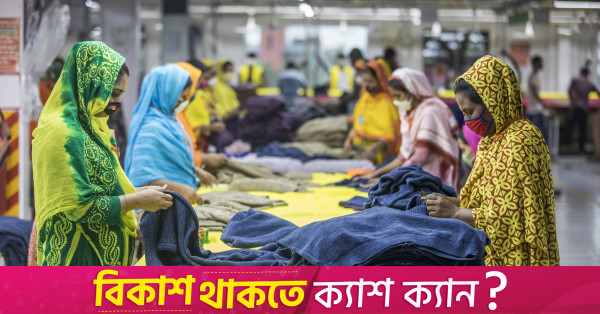Bangladesh’s RMG sector is confronting the limitations of a cost-based model that struggles against a widening productivity gap. Photo: TBS
“>

Bangladesh’s RMG sector is confronting the limitations of a cost-based model that struggles against a widening productivity gap. Photo: TBS
Representatives from development partner countries and organisations have advised the Bangladesh government to expedite the amendment of its labour laws, specifically by including Export Processing Zones (EPZs).
This recommendation was made during the ‘3+5+1’ dialogue, held at the Ministry of Commerce today, according to officials present at the dialogue.
The development partners also called for simplifying the process for workers to form trade unions and inquired about the progress of implementing the International Labour Organization (ILO) roadmap aimed at improving Bangladesh’s labour sector.
During the dialogue, Bangladesh presented the progress made in the labour sector under the ILO’s roadmap, acknowledging delays caused by several factors, including the Covid-19 pandemic, national elections, and the recent student-led mass uprising and government changes.
Officials asked for more time to fully implement the conditions set by the ILO, the European Union (EU) and the United States to improve the labour environment.
The ‘3+5+1’ dialogue involves representatives from three Bangladeshi ministries—the Ministry of Commerce, Ministry of Labour and Employment, and Ministry of Foreign Affairs—along with five development partners—the EU, the US, the UK, Canada, and Germany—and the ILO.
This annual dialogue, held since the Rana Plaza collapse and the Tazreen fire, serves as a platform to monitor and encourage the sustainable reform and development of Bangladesh’s labour sector.
Bangladesh has adopted a national action plan for labour sector development (2021-2026), which is closely linked to the roadmap submitted to the ILO governing body.
During the dialogue, development partners inquired about the progress of implementing the national action plan in line with the EU’s due diligence requirements. Bangladesh shared the latest updates on these issues, officials present at the dialogue said.
Additionally, discussions were held regarding the progress of the 16 conditions set by the US Trade Representative (USTR) for reinstating Bangladesh’s duty-free access to the US market, which was suspended following the Rana Plaza tragedy.
The development partners expressed concern over the workers who were sued during the 2023 minimum wage movement, stressing the need for an acceptable resolution. They also called for measures to prevent workers from being blacklisted and urged a more effective role for the National Tripartite Consultative Council in addressing labour issues.
Despite some unmet conditions, development partners expressed satisfaction with the government’s commitment to labour sector improvements and recognised the reasonable causes for delays. However, they strongly advised that there should be no further delay in amending the labour laws to include EPZs, officials said.
One official said that the development partners assured the interim government of their full support. They also proposed the consideration of a grant from the EU’s budget assistance to financially support unemployed workers.


